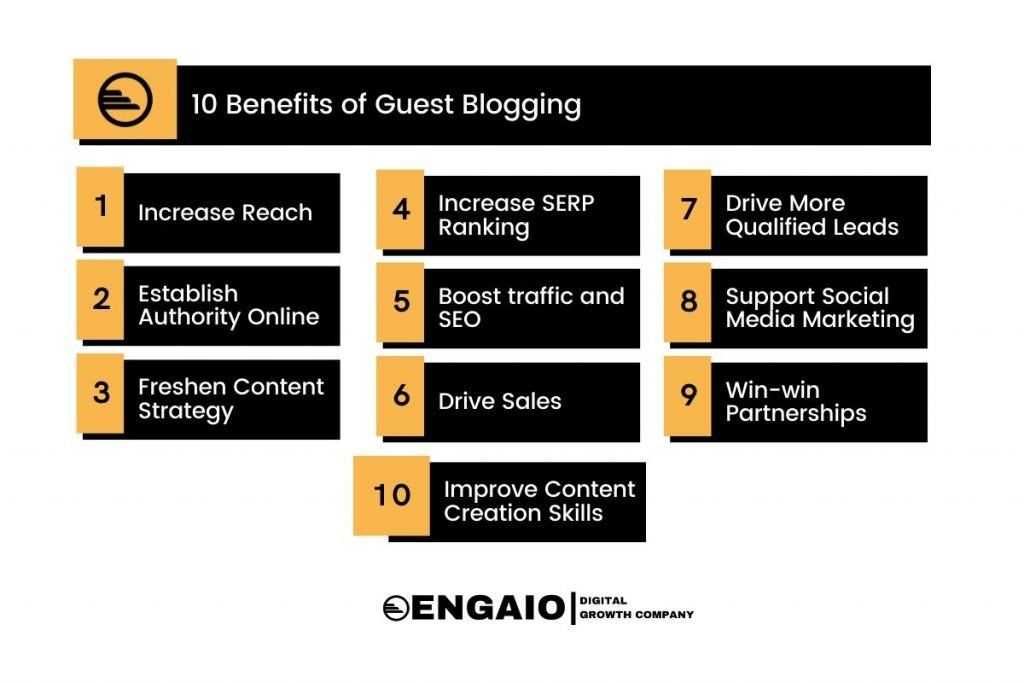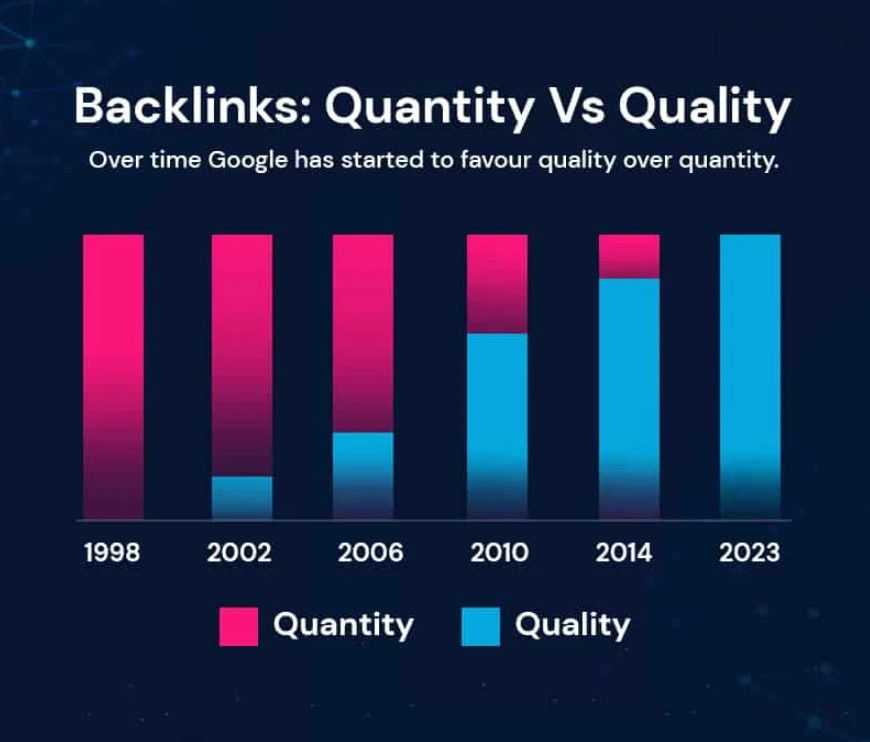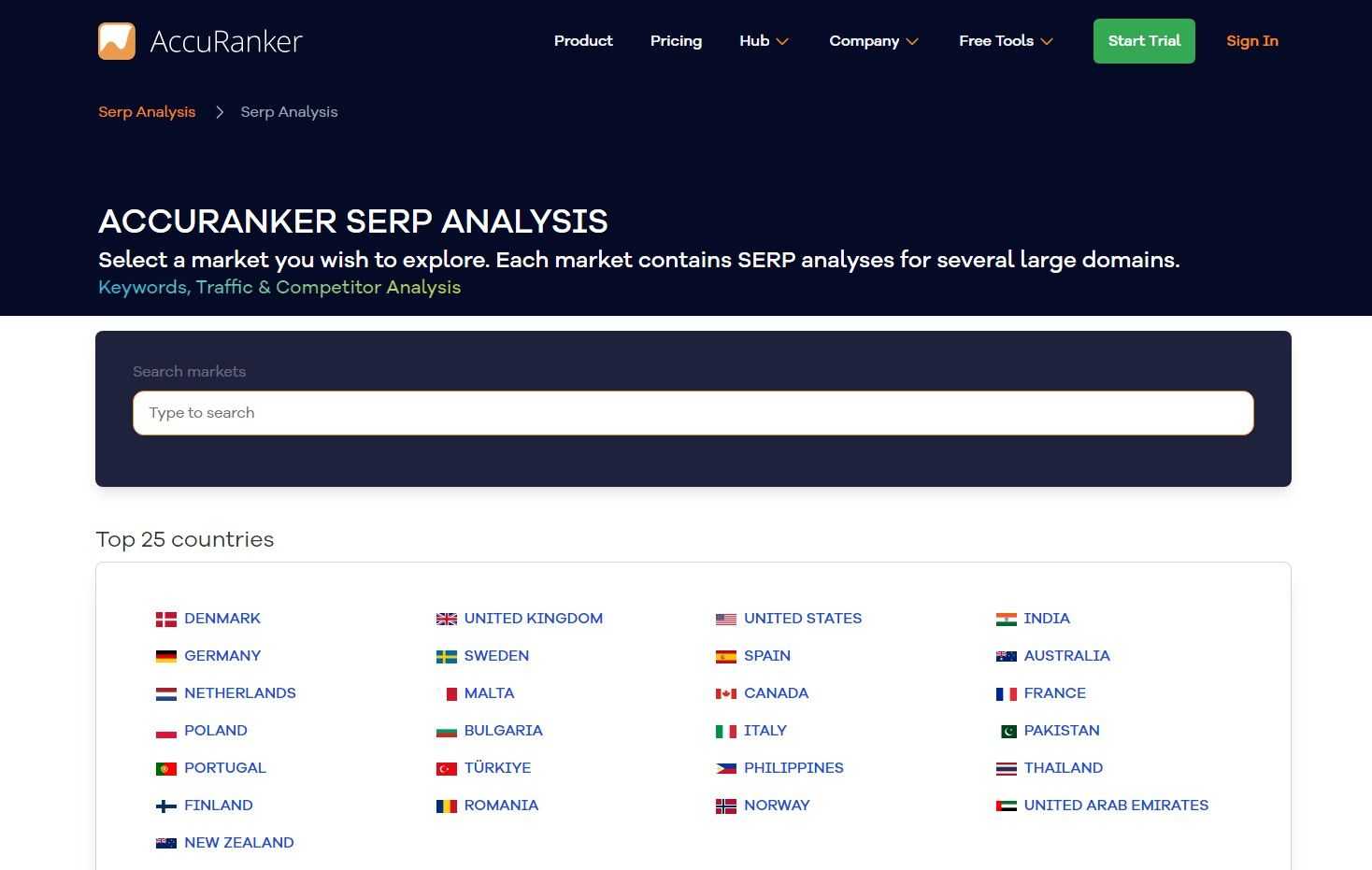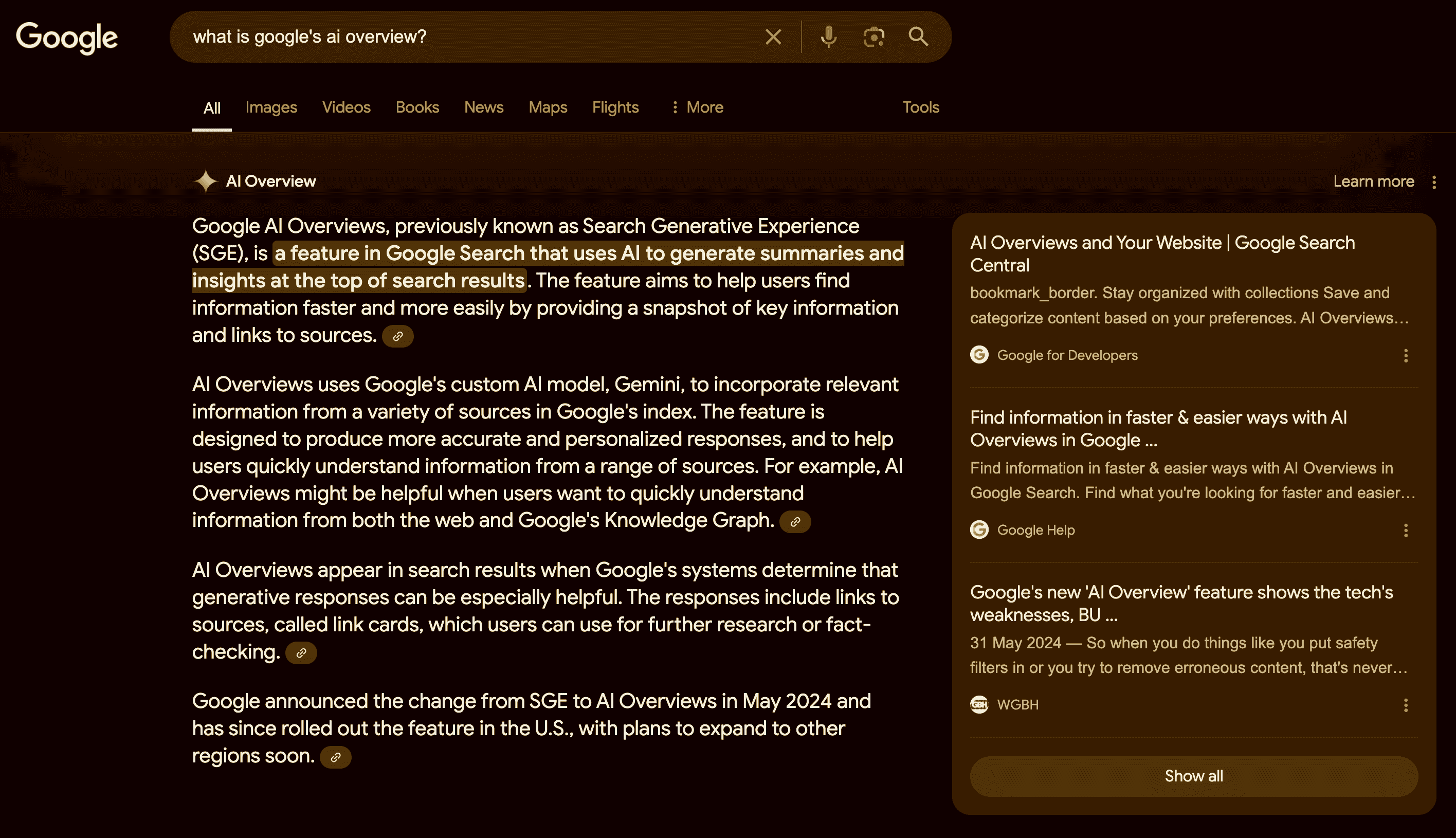How to Build Links That Will Actually Improve Your SEO
Last updated on Monday, September 11, 2023
In the vast and ever-evolving landscape of search engine optimization (SEO), one aspect remains constant—the importance of building high-quality links. These digital connections are the lifeblood of your website's SEO strategy, influencing your rankings, visibility, and, ultimately, your online success. However, as with any digital marketing practice, there are myths and misconceptions surrounding link-building. This article will disprove these myths and guide you through building links that can boost your SEO.
Tips and Best Practices for Building Links
Develop exceptional content that others will want to link to
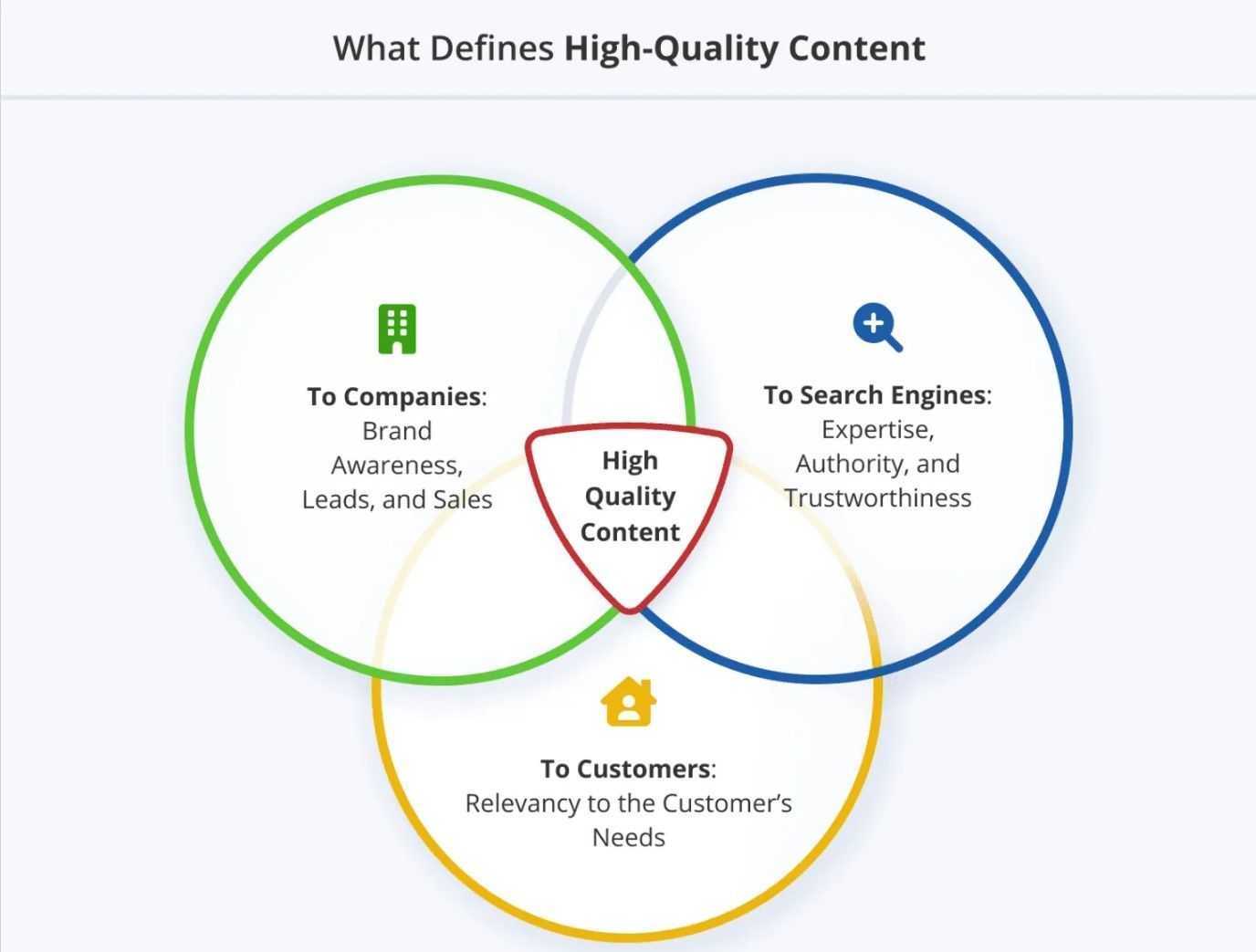
Exceptional content is the basis of any successful link-building strategy. Craft engaging, informative, and shareable content that naturally attracts backlinks from other websites. For a successful link-building and SEO campaign, consider the following tips:
In-Depth Research: Start by conducting thorough research on your chosen topic. Dive deep into the subject matter to provide valuable insights, statistics, and data that are difficult to find elsewhere.
Unique Angle: Offer a unique perspective or angle that separates your content. Share your personal experiences, case studies, or anecdotes to make your content more relatable and engaging.
Visual Elements: Incorporate eye-catching visuals such as images, infographics, and videos to enhance your content's overall appeal and comprehensibility.
User-Friendly Formatting: Structure your content for easy readability. Break up the text using headings, subheadings, bullet points, and short paragraphs to improve the user experience.
Actionable Insights: Provide actionable tips and advice that readers can implement immediately. Practical advice adds value to your content and encourages sharing.
Cite Reliable Sources: Back up your claims with data and cite authoritative sources. This practice adds credibility and encourages others to link to your well-researched content.
Engage Your Audience: Encourage reader engagement through comments, questions, or discussions within your content. Respond to comments promptly to foster a sense of community.
Regular Updates: Keep your content up-to-date to ensure its relevance. Outdated information can deter potential backlinks.
Promotion and Outreach: Promote your content to your target audience and industry influencers. Outreach to relevant websites and bloggers who find your content valuable for their readers.
Guest blog on other high-quality websites
Source: Engaiodigital.com![Benefits of Guest Blogging]()
Guest blogging or posting remains a potent strategy for acquiring high-quality backlinks. To maximize its impact, follow these tips:
Identify Niche-Relevant Platforms: Research and identify reputable websites within your niche. Ensure they have a strong online presence and an engaged audience.
Build Genuine Relationships: Prioritize building relationships with blog owners and editors before pitching your content. Engage with their content, leave thoughtful comments, and connect on social media.
Craft Unique and Valuable Content: When proposing guest posts, offer original, high-quality content that aligns with the host site's audience and complements their existing content.
Follow Guest Posting Guidelines: Every platform has specific guidelines for guest contributors. Adhere to these guidelines meticulously to increase your chances of acceptance.
Author Bio Optimization: Ensure your author bio is concise, informative, and includes a link back to your website. Some sites also allow contextual links within the content, which can be even more valuable.
Promote Your Guest Posts: Once your guest post is live, actively promote it through your social media channels and email list. This approach enhances your visibility and encourages others to link to your content.
Submit your content to directories and aggregators
Source: SearchLogistics.com![Backlinks - Quality vs Quantity]()
Enhance your link-building strategy by strategically submitting your content to directories and aggregators. Here's how to make the most of this tactic:
Selective Submissions: Choose relevant directories and aggregators for your niche or industry. This strategy ensures that your content reaches an audience genuinely interested in your topic.
Quality Over Quantity: Almost 94% of link builders consider link quality to be more essential than link quantity. Avoid low-quality directories, which can harm your SEO. Focus on reputable platforms that offer genuine value and SEO benefits.
Consistent Updates: Keep your listings up-to-date with fresh content to maintain relevance and effectiveness.
Varied Anchor Text: Use diverse anchor text to create a natural and organic linking profile for your submissions.
Comment on other blogs and forums
Actively participating in blog comments and forums enriches discussions and opens doors to link-building opportunities. Maximize the impact of this strategy with these insights:
Value-Driven Contributions: Share insightful comments that add value to ongoing conversations. Establish your expertise and credibility within your niche.
Contextual Linking: When relevant, include links to your content in a non-promotional, contextually appropriate manner. This practice can attract traffic and potential backlinks.
Relationship Building: Forge connections with other community members and influencers. Building genuine relationships can lead to collaborative content opportunities and increased link-sharing.
Participate in social media
Social media platforms are dynamic arenas for link-building, content marketing, and relationship-building. Here's how to maximize your efforts:
Strategic Sharing: Share your content across relevant social media platforms, optimizing posts for each platform's audience and format.
Engagement and Interaction: Engage with your audience by responding to comments, answering questions, and initiating conversations. Building a loyal following enhances your content's reach and credibility.
Influencer Collaboration: Forge relationships with industry influencers by sharing their content, tagging them, and engaging with their posts. Influencers may reciprocate by promoting your content and creating valuable backlinks.
Shareability: Craft shareable content that resonates with your target audience. Utilize eye-catching visuals, compelling headlines, and concise messaging to encourage sharing.
Analytics and Optimization: Track social media metrics to identify successful strategies and adapt your approach over time.
Run link-building campaigns
Running targeted link-building campaigns can be a game-changer for your SEO. After content and keywords, link building is the third most critical factor influencing SEO rankings. Here's how to make these campaigns effective:
Defining Objectives: Clearly define your campaign's goals, whether improving rankings for specific keywords or building authority within a niche.
Outreach Strategy: Reach out to potential link partners, industry influencers, and websites within your target niche. Personalized, compelling outreach messages are key.
Influencer Collaborations: Partnering with influencers can bring credibility and visibility to your campaign. Influencers can promote your content and secure valuable backlinks.
Resource Creation: Develop shareable, informative resources such as guides, ebooks, or infographics. These assets can attract natural backlinks when they provide value.
Monitoring and Adaptation: Continuously monitor the progress of your campaigns and adjust your strategies as needed. Measure success through metrics like referral traffic and backlink acquisition.
Use link-building tools and services
![Accuranker SERP Analysis]()
Aside from its powerful link-building platform, Accuranker also offers a free competitor analysis tool.
Embracing technology can supercharge your link-building strategies. Here's how to harness the power of these resources:
Backlink Analysis: Use a backlink checker or analysis tools to evaluate your link profile and spy on competitors. These tools can uncover valuable insights.
Outreach Automation: Invest in outreach automation platforms to streamline communication with potential link partners. These solutions can help manage emails, track responses, and schedule follow-ups.
Content Research: Content research tools can aid in identifying content gaps and opportunities in your niche.
Link Prospecting: Seek link-building tools like AccuRanker to efficiently identify and connect with potential link prospects.
Competitor Analysis: Analyze your competitors' keyword and backlink profiles to uncover potential link-building opportunities and replicate their successful strategies.
Avoiding Bad Links
Do not build links from low-quality websites
Not all links are created equal. Building links from low-quality or spammy websites can harm your SEO efforts. Here's how to avoid the pitfalls of low-quality links:
Discern Link Quality: Scrutinize potential link sources. Avoid websites exhibiting spam, low authority, or poor content quality.
Relevance Is Key: Prioritize links from websites relevant to your niche or industry. Contextual relevance bolsters the credibility of your links.
Authority Matters: Seek out links from websites with a strong domain authority (DA) and a proven track record in your field.
Avoid Link Farms: Steer clear of link farms or networks solely for link exchange purposes. Search engines can penalize you for these.
Regular Audit: Review your backlink profile to identify and disavow low-quality or toxic links.
Refrain from building links from websites that have been penalized by Google
Building links from websites penalized by Google is a risky endeavor. Here's how to protect your SEO efforts:
Due Diligence: Before pursuing link-building opportunities, thoroughly vet the potential linking domain's SEO health. Check for past penalties or questionable practices.
Use Google Search Console: Google Search Console can provide insights into any penalties associated with a particular website. Verify its status before linking.
Monitor Relevance and Quality: Even if a website hasn't been penalized, assess its relevance and content quality. Low-quality, irrelevant websites can still harm your SEO.
Stay Informed: Keep abreast of Google's algorithm updates and guidelines to avoid inadvertently linking to penalized websites.
Avoid building links that are spammy or irrelevant
In link-building, relevance is your guiding principle. Here's how to steer clear of spammy or irrelevant links:
Content Alignment: Ensure the content surrounding your link aligns seamlessly with your website's content. Irrelevant links can raise red flags with search engines, leading to poor SERP results.
Contextual Linking: Insert your links within content where they naturally fit and add value. Avoid overusing anchor text or placing links in unrelated content.
Quality over Quantity: Focus on obtaining a few high-quality, contextually relevant links over many irrelevant ones. Quality always trumps quantity in link building.
Link Diversity: Diversify your link sources to include authoritative websites within your niche or industry. This practice reinforces the relevance and value of your links.
The Key to Effective Link Building: Quality Over Quantity
Link-building is a basic part of SEO that can significantly impact your website's rankings and visibility. However, it's essential to approach link-building with a strategic and ethical mindset. Remember that link-building is a long-term process that needs time and effort. But if done well, it can be a highly effective way to enhance your SEO and drive organic traffic to your website.
As you embark on your link-building journey, stay informed about the latest SEO trends and adapt your strategies accordingly. Building high-quality links remains a powerful SEO technique, so invest wisely to achieve long-term success in the digital landscape.

Article by:
Kevin Donvas
SEO Manager
Kevin Donvas is a seasoned SEO Manager and Link Builder hailing from the bustling city of Chicago. With half a decade of experience under his belt, Kevin has carved a niche for himself in tech-related sectors, leveraging his expertise to drive organic growth and enhance online visibility. His deep understanding of search engine optimization, combined with a passion for technology, positions him as a go-to professional in digital marketing. When he's not optimizing websites or building authoritative links, Kevin enjoys exploring the latest tech trends and innovations that shape the digital world.
